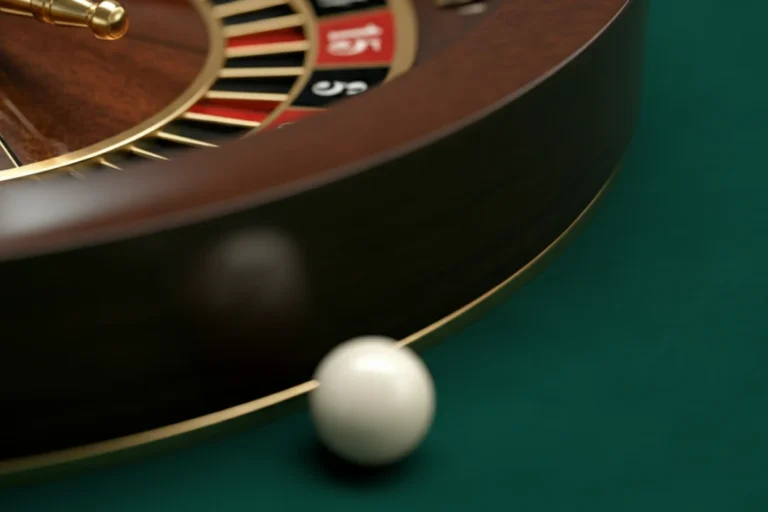There’s something thrilling about waiting for the roulette wheel to slow down, watching the ball bounce, and hoping you’ve picked the right number or color. For many newcomers, though, the table can seem complicated at first. Learning just a handful of straightforward roulette strategies for beginners can transform your first session from confusing to fun—and even give you a better shot at handling your chips wisely.
Understanding the Roulette Table and Bets
Getting familiar with the table is your first step. You’ll typically come across two kinds of wheels: European and American. The European wheel is friendlier to players, with 37 pockets (one green zero), while the American version adds a double zero, bumping up the house’s advantage just a bit more.
Types of Bets
Roulette offers two big groups of bets: inside and outside. Inside bets target specific numbers on the wheel. These win less often but pay more if your number hits. Outside bets include options like red or black, odd or even, and high (19-36) or low (1-18) numbers. These cover more numbers and pay out more frequently, but the rewards are smaller.
Essential Bankroll Management Rules
One thing that separates casual players from smart ones is how they handle their chips. Good bankroll management is at the core of all roulette strategies for beginners. Set a clear budget for how much you’re okay losing before you ever place a bet.
Decide what you’d be happy to win and what’s your cut-off for losses—then hold yourself to those limits. If you hit either number, call it a day and come back fresh another time. This habit not only protects your wallet, but also makes playing much more enjoyable.
Simple Betting Systems to Try
You won’t find a sure-win method in roulette, but certain betting patterns can add structure to your play. Here are some straightforward roulette strategies for beginners you might want to try out:
Martingale System
With Martingale, you double your bet after every loss. This way, when you do win, you’re likely to recover past losses plus a little profit. Be sure to pay attention to the table minimums and your own bankroll, since a long losing streak can be rough.
Reverse Martingale (Paroli)
This strategy is the flip side: you double your bet after every win, seeking to ride a lucky streak. Set a target for how many wins in a row you’ll go for before returning to your first bet, so you don’t get carried away by luck.
D’Alembert System
This approach is more gradual. After a loss, you simply increase your bet by one unit, and after a win, you lower it by one. It tends to be gentler on your stash and helps pace your betting without big swings.
Choosing the Right Roulette Table
The wheel and the atmosphere at the table can make a real difference. Keep these factors in mind:
- Wheel Selection: Whenever possible, pick a table with a single zero (European style), since the odds favor you more than with a double zero.
- Minimum Bets: Choose a table where the minimum bet fits your bankroll so you can enjoy more plays.
- Friendly Environment: Tables with approachable dealers and positive energy are great for beginners and help you soak up the experience.
Managing Risk and Keeping Perspective
Roulette is all about luck, and there’s no way to tip the odds completely your way. Still, the smartest roulette strategies for beginners have two main goals: protecting your bankroll and keeping the fun in the game.
- Stick to outside bets like red/black or odd/even for steadier, smaller wins.
- Don’t try to chase losses with bigger bets—this often leads to faster loss of funds.
- Embrace the randomness; some sessions will be lucky, others won’t.
- Celebrate any winnings as a bonus instead of making them your goal.
Common Mistakes to Look Out For
Many first-timers fall for the myth that certain numbers are due to win because they haven’t come up in a while. Every spin is completely random! Failing to set boundaries for wins and losses is another pitfall—this can quickly drain your budget. It’s also best to avoid complicated betting tactics until you’ve mastered the basics and feel at home at the table.
Conclusion
If you’re just starting out, focus on learning the basics, setting a firm budget, and trying out a few simple strategies for roulette. Remember that roulette is for entertainment—if you play smart and stay within your limits, the fun will follow. Enjoy the thrill, soak up the atmosphere, and let the chips fall where they may.
For a deeper dive into classic and modern betting approaches, you might find this comprehensive roulette guide from the Wizard of Odds useful.
FAQs
What is the best way for a beginner to play roulette?
Stick with outside bets and keep your wagers modest. This gives you better odds of small, frequent wins.
Should I bet on both red and black at the same time?
Betting both sides at once cancels itself out, and you’ll still lose if it lands on zero. It’s best to pick one and stick with it.
Why choose a European roulette wheel over an American one?
European wheels have just one zero, lowering the house edge and giving you slightly better odds compared to the American table.
Is it possible to consistently win at roulette?
Because the game is random and the house always keeps a slight edge, no strategy can ensure consistent wins. Use roulette strategies for beginners to make smart decisions and have fun.
How much should I bring to the table as a new player?
Only risk what you’d feel okay losing, and start small—enough to make several minimum bets and enjoy a few rounds without stress.
You may also read: Best Online Roulette Games 2025: A Player’s Guide





